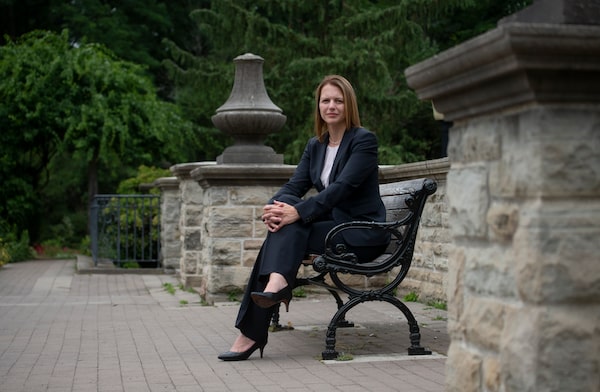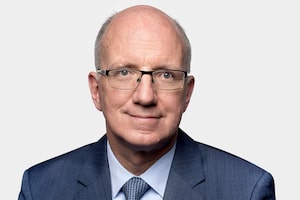
Barbara Zvan, seen here on July 16, 2020, has been named president and CEO of the University Pension Plan Ontario.Fred Lum/The Globe and Mail
Canada’s newest and arguably most ambitious pension plan has picked its first chief executive, with the $10-billion University Pension Plan Ontario naming veteran risk manager Barbara Zvan to the top job.
Ms. Zvan, an executive at the Ontario Teachers’ Pension Plan during a period of significant global expansion, took the helm as president and CEO of the UPP Tuesday as the plan’s first full-time employee.
The UPP was created in December from the merger of five pension plans at just three schools – the University of Toronto, Queen’s University and the University of Guelph. However, the fund manager’s goal is to create a massive plan with low costs and superior performance by welcoming additional schools to the fold, tapping into the $25-billion of pension assets in 32 plans at 21 Ontario universities.
“My long-term goal is to build a pension plan that our members can be proud of,” Ms. Zvan said in an interview from her home office (she is currently looking for headquarters). “My short-term goal is to create two strong businesses: an investment business and a group that can service our members.”
The new CEO has a year to put policies and people in place, as the UPP is mandated to be fully operational by July 1, 2021, when the plan’s administration – including pension payments and investments – becomes Ms. Zvan’s responsibility.
Chair Gale Rubenstein said the plan’s board quickly zeroed in on Ms. Zvan as a leading candidate because of her success at Teachers’ in building a global asset manager with a strong culture that served multiple sponsors – the plan is backed by the provincial government and teachers through their unions.
“We’re excited that Barb has accepted this challenge,” said Ms. Rubenstein, an expert in pension law and a partner at Goodmans LLP. “Barb is a passionate advocate for the social value of defined-benefit pension plans.”
Like many large Canadian public-sector pension plans, the Toronto-based UPP is a jointly sponsored fund, with contributions coming from faculty associations, unionized university employees – represented by the United Steelworkers and the Canadian Union of Public Employees – and the three universities. Both the UPP and Teachers’ have a board of directors drawn from representatives of their various stakeholders.
An actuary by training, Ms. Zvan joined Teachers’ as an assistant portfolio manager in 1995, as the fund manager began investing in public markets – it previously only held illiquid provincial bonds. She rose through the ranks as the fund manager built a global platform with more than $200-billion of client assets and was named chief risk and strategy officer in 2016.
She was seen as a contender for the top job when CEO Ron Mock announced plans to retire last summer. However, the Teachers’ board picked Jo Taylor, head of its international-investing arm, as the new president and CEO. Ms. Zvan left in January.
Over the past decade, she played an active role in creating policies around sustainable investing. She was named to the Government of Canada’s expert panel on sustainable finance, is a member of the advisory committee for the new Investing to Address Climate Change charter and played a significant role in creating the Group of Seven Investor Leadership Network. She is also on the board of the Toronto-based Global Risk Institute. In the interview, Ms. Zvan said one of her priorities at the UPP will be creating an investment approach that reflects environmental, social and governance criteria.
This spring, she volunteered as part of the team that audited the Alberta Investment Management Corp., the province’s $119-billion public-sector fund manger, after AIMCo lost $2.1-billion in late March on investment strategies tied to market volatility. Ms. Zvan declined to comment on the specifics of the assignment, but did say, “The key to successful fund managers is a culture that values the contributions of all employees.”
In a report published this month, AIMCo’s board of directors concluded that the fund managers’ missteps reflected a poor approach to risk management and insufficient oversight of its investment team.
Your time is valuable. Have the Top Business Headlines newsletter conveniently delivered to your inbox in the morning or evening. Sign up today.
 Andrew Willis
Andrew Willis